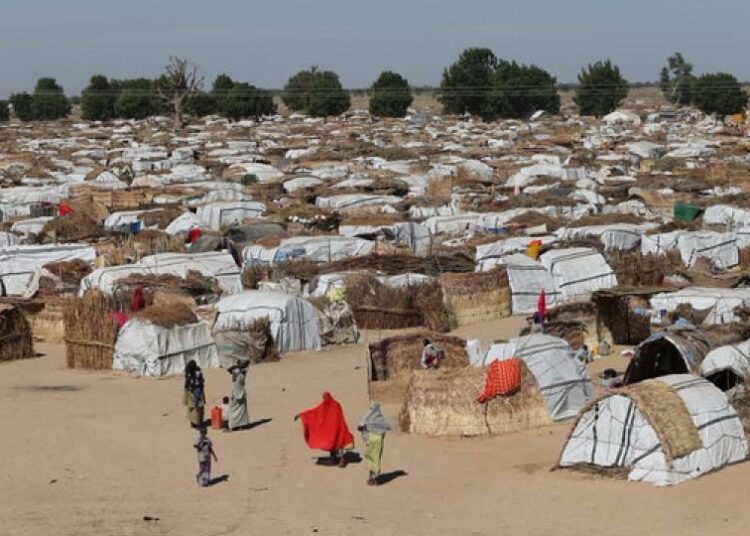The Borno State Attorney General and Commissioner for Justice, Barr. Hauwa Abubakar, has said that the massive resettlement of Internally Displaced Persons (IDPs) will bridge housing deficits in the state.
The commissioner for Justice added that the resettlement of tens of thousands of IDPs into their communities was a measure used by Governor Babagana Zulum to close all the camps in Maiduguri and the ones in 24 local government areas.
Applauding the coordinated massive resettlement exercise of the governor yesterday in Maiduguri, she said the return of IDPs in camps to Konduga 500 housing units newly commissioned by the state government, was in line with the Kampala Convention on persons displaced by Boko Haram insurgency in the state.
She noted that the IDPs were not only returned to ancestral homes, but their continuous resettlements by the governor will bridge housing deficits, as more 500-housing estates are to be constructed in Dalwa and Aulari communities in Konduga local council.
Lamenting that the displaced persons had been living in various camps for over a decade, she said that the resettlement initiative is a remarkable achievement and a testament to Zulum’s commitment to addressing the pressing housing needs of displaced families by rebuilding communities affected in the 15-year insurgency.
She said, “What truly stands out about the IDPs resettlement project was the comprehensive nature of bridging the housing deficit in Borno.”
She said that there was the integration of schools, healthcare centres, and water supply facilities, alongside the resettlement packages comprising food items, cash transfers, and other household supplies.
The attorney general noted that the governor is not only bridging housing deficits, but laying the groundwork for individuals and families to rebuild their lives with dignity.
“The coordinated resettlement exercise underscores Zulum’s proactive approach and determination to ensure that more displaced families are resettled in a safe and dignified conditions. This will ensure sustainable development and welfare of the people in the state,” she added.





